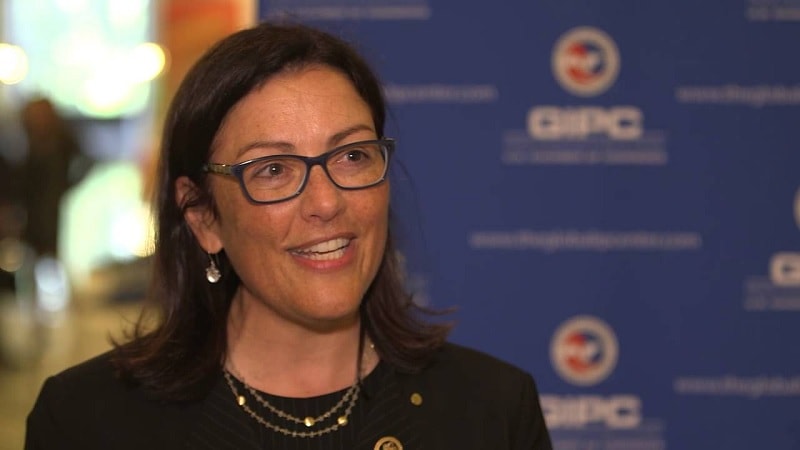
At ITI’s inaugural Tech and Policy Summit on Jan. 31 in Washington, D.C., three members of the 118th Congress outlined their priorities for technology and innovation legislation for the next two years.
Sen. Todd Young, R-Ind., and Reps. Suzan DelBene, D-Wash., and Darin LaHood, R-Ill., said they will continue to push policies that will support national security, research and development, and other technological advancements, like digital trade.
Sen. Young wants to prioritize some of his time in the new Congress to implement the CHIPS and Science Act – bipartisan legislation that the lawmaker played a large role in passing last year.
“I’m looking forward to making investments in our people. So much of the CHIPS and Science Act is investments in human capital [and] skills,” Sen. Young said. “That really excites me.”
“When you’re talking about economic growth and technological advancement or competitiveness, you’re also talking about national security,” Sen. Young said. “We’re going to invest in the space through tech hubs, and we’re going to invest in the people through skills and next-gen tech.”
Reps. DelBene and LaHood are continuing to focus their energy on the Digital Trade Caucus – a bipartisan group the two representatives lead together.
“We are working to get more members engaged and involved,” Rep. LaHood said on Tuesday. “We’re just trying to educate people on the importance of digital [and] e-commerce and some of the issues that are out there.”
He emphasized that the goal of the caucus is to ensure the nation has the “most robust e-commerce system in the world.” But the co-chairs of the caucus must start by educating their peers and the public on what digital trade even means.
“A lot of folks think its about a few technology companies that care about digital trade, but it’s really about everything,” Rep. DelBene said. “Every sector of our economy depends on digital trade and data flows.”
“People don’t think broadly about what digital trade means,” she said. “But it’s really foundational to the way our economy works.”
The co-chairs are working closely in the new Congress on altering the U.S. tax policy to include digital trade.
“We need to come up with a model,” DelBene said. “Tax policy generally focuses on physical presence and physical goods, and we need to update that to represent the way our economy works.”
When Rep. DelBene launched the congressional Digital Trade Caucus in 2017, she wanted to ensure the nation’s government worked together to set global trade rules – not follow them.
“We can’t set international rules if we aren’t doing a good job of setting rules right here at home,” Rep. DelBene said at ITI’s summit.
